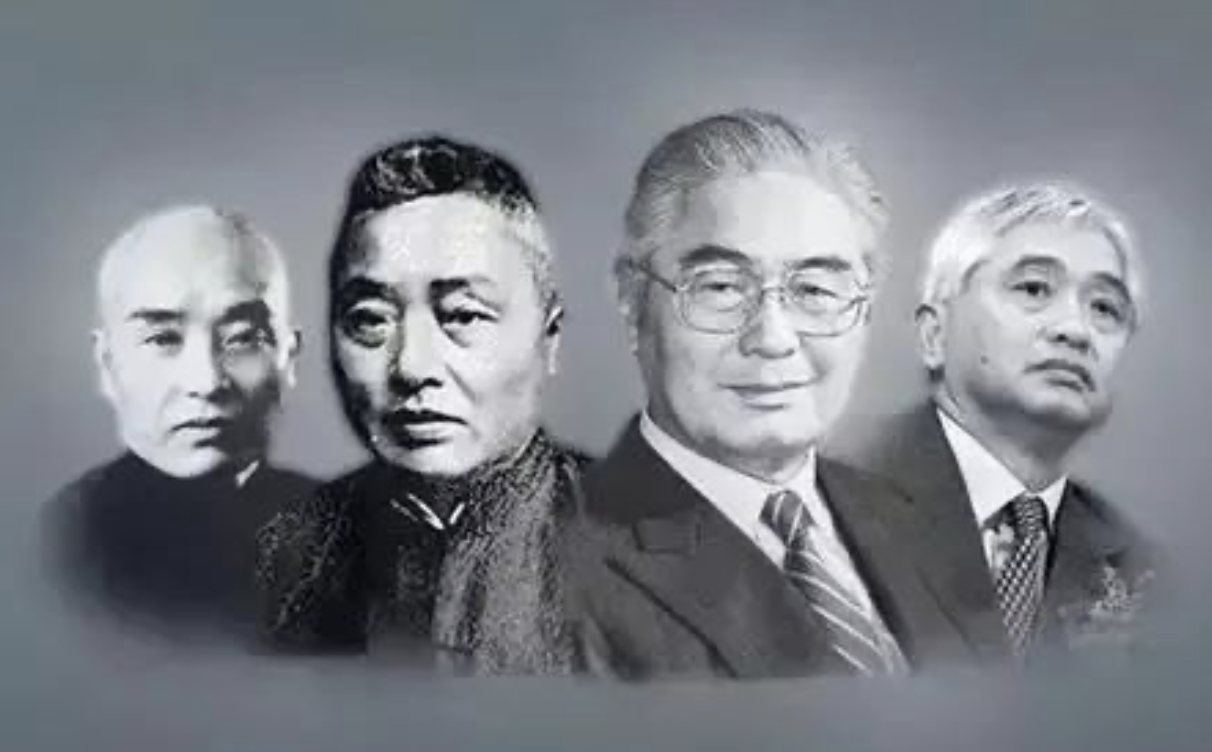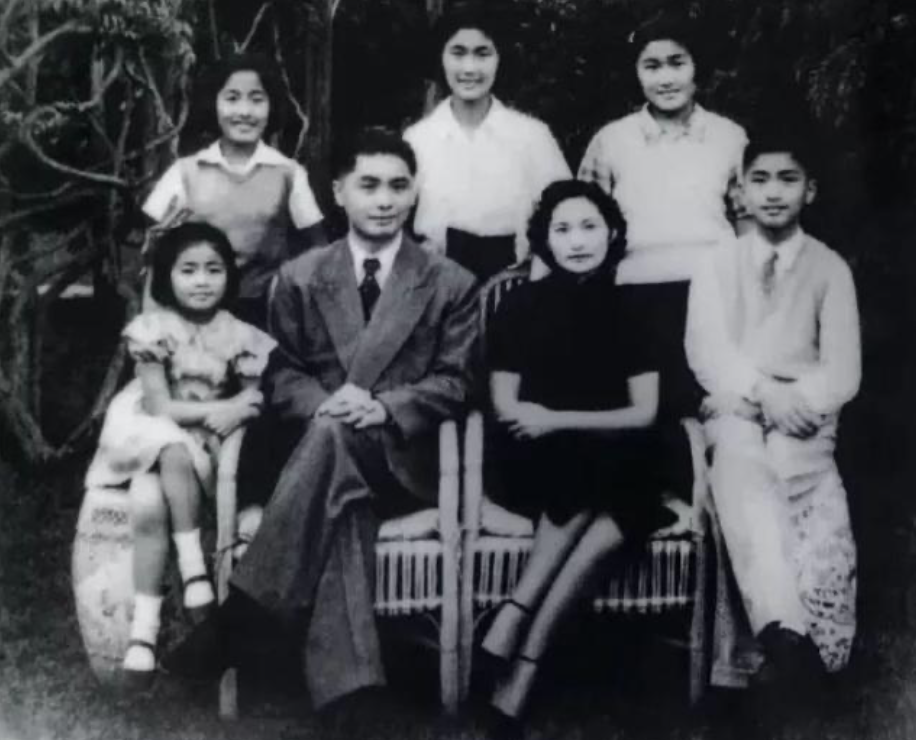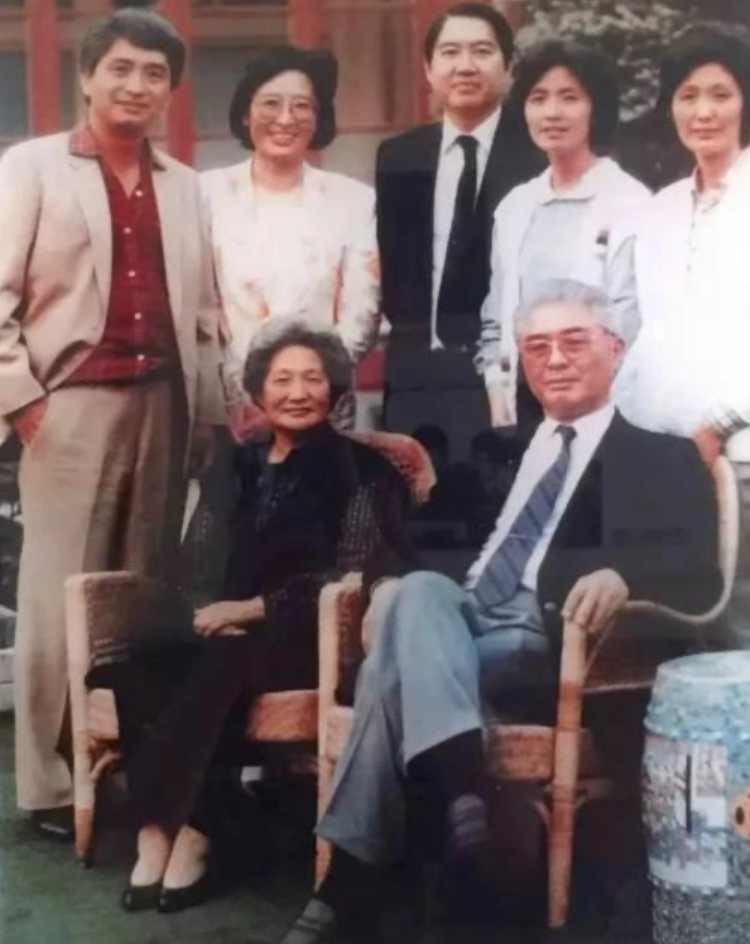"Half of China will wear my clothes, and half will eat my food," Rong Zongjing, one of the two founders of the Rong empire, declared in 1933. The family's century-long history is a journey from rags to riches, fueled by business acumen and unwavering principles.
Rong Xitai laid the foundation for the Rong family's prosperity. He started with a pawnshop in Taicang. In 1896, he opened Guangsheng Bank in Shanghai, bringing in his two sons, Rong Zongjing and Rong Desheng, to manage and oversee accounting. This marked a turning point, propelling the Rong family's fortune to new heights.
 |
Key members of the Rong family (from left to right) across generations: Rong Zongjing, Rong Desheng, Rong Yiren, and Rong Zhijian. Photo: The Paper |
Key members of the Rong family (from left to right) across generations: Rong Zongjing, Rong Desheng, Rong Yiren, and Rong Zhijian. Photo: The Paper
An empire of flour and cotton
In 1899, a business idea sparked when Rong Desheng saw mountains of Western flour at the docks. He realized that increasing imports meant China's wealth was flowing into foreign pockets. Rong Desheng, then 27, and his brother Rong Zongjing, 29, decided to build China's own flour mill.
The Bao Xing Flour Mill was established in 1902. Their beginnings were challenging until the Russo-Japanese War (1904) and World War I disrupted foreign flour supplies. The Rong brothers continuously borrowed, imported modern machinery to increase productivity, and captured the market.
By 1922, their mills held a 33% share of the national flour market. Recognizing food and clothing as two basic needs, they ventured into textiles. Profits were so substantial that people said, "a bale of cotton yields a bar of gold." When the boycott of Japanese goods began, their products sold even faster, crowning Rong Zongjing and Rong Desheng as the "Flour King" and "Cotton Yarn King," respectively, dominating two of China's most essential industries.
A legacy reaching its peak
The family's apex came with the third generation, Rong Yiren. In 1979, Deng Xiaoping entrusted him with establishing the China International Trust and Investment Corporation (CITIC), a pioneering gateway for foreign investment into China.
Under his leadership, CITIC became a multinational conglomerate. A historic milestone was the successful issuance of 10 billion yen in bonds in Japan in 1982, securing valuable capital for the nation. Former US Secretary of State Henry Kissinger praised his abilities: "A businessman like Mr. Rong who understands both planned and market economies is a rare find."
 |
A photo of Rong Yiren's family members. Photo: The Paper |
A photo of Rong Yiren's family members. Photo: The Paper
Rong Yiren declined salary and shares during his leadership, but left a monumental legacy. His son, Rong Zhijian, continued this legacy and was once named China's richest person. Despite economic fluctuations, the Rong empire remains strong, with later generations holding key positions.
The secret to a century of prosperity
The Rong family defied the saying "wealth not lasting three generations" thanks to a spiritual legacy passed down through generations.
The secret lies in two core family precepts. First, Rong Xitai's teaching: "Maintain stability, act cautiously, never speculate." Second, Rong Desheng's words inscribed on a couplet: "Embrace high aspirations, seek moderate relationships, enjoy simple blessings; Stand on high ground, sit on level ground, walk on wide paths." This can be interpreted as: Have great ambition, but seek moderate relationships and live a simple life; have foresight, but be humble and leave room for others.
 |
Portraits of Rong Yiren's family members in his later years. Photo: The Paper |
Portraits of Rong Yiren's family members in his later years. Photo: The Paper
Besides family precepts, the family's prosperity stems from a unique wealth management structure: the family office. This entity manages shared assets and oversees business operations, ensuring smooth and transparent power transitions.
This family fund provided capital for later generations to start their own ventures. When Rong Zhijian went to Hong Kong alone, he used the fund's interest to build his own career. Descendants become board members of the fund at 18, participating in management and receiving their own funds for free use.
"The elders don't set many limits. The Rong family's boundaries are simple: no drugs, no deception, no gambling," shared Rong Hailan, a third-generation member.
The true secret to the Rong family's five generations of prosperity is the combination of exceptional business vision and unbreakable ethical principles.
Minh Phuong (The Paper, kknews)












